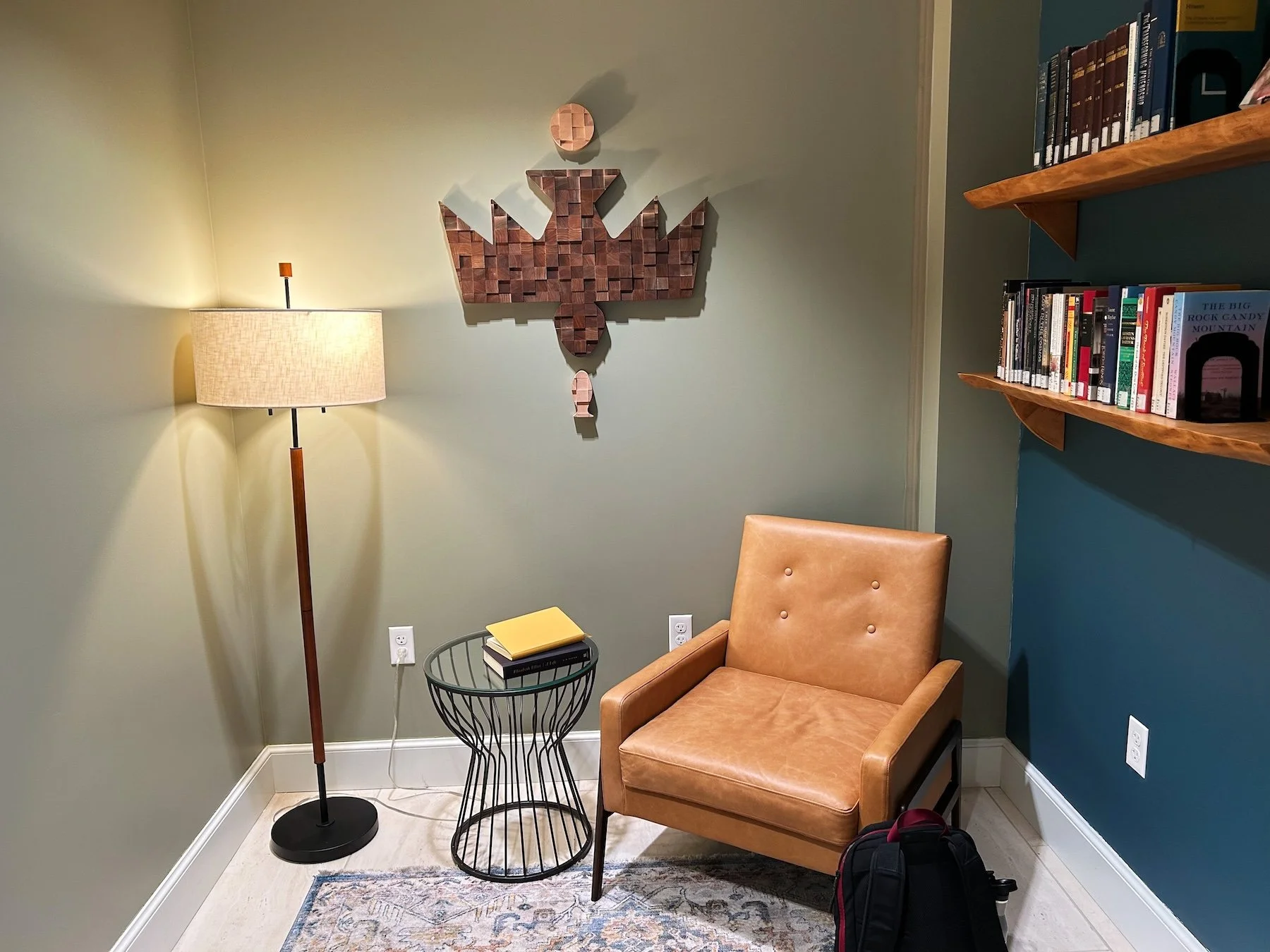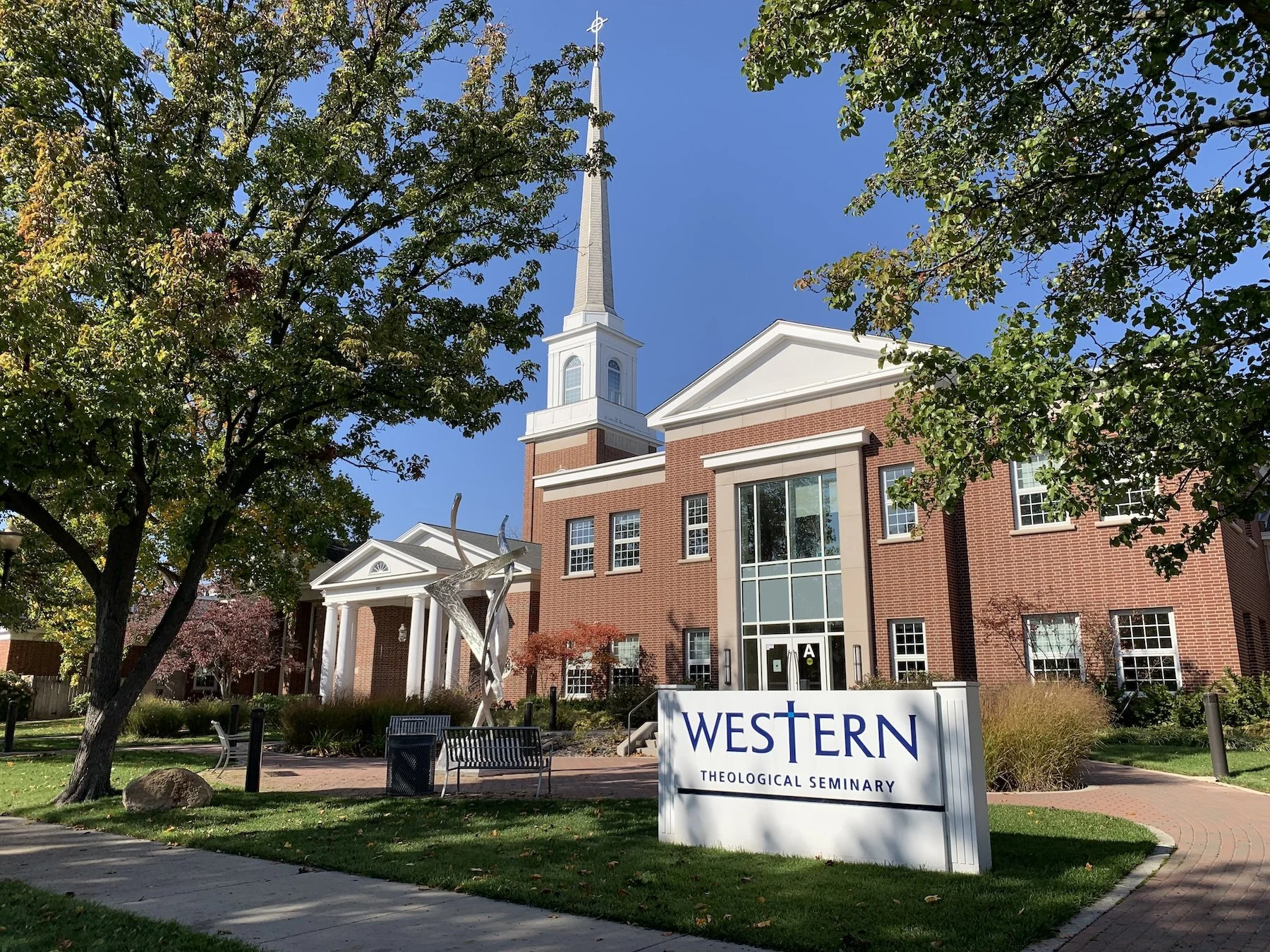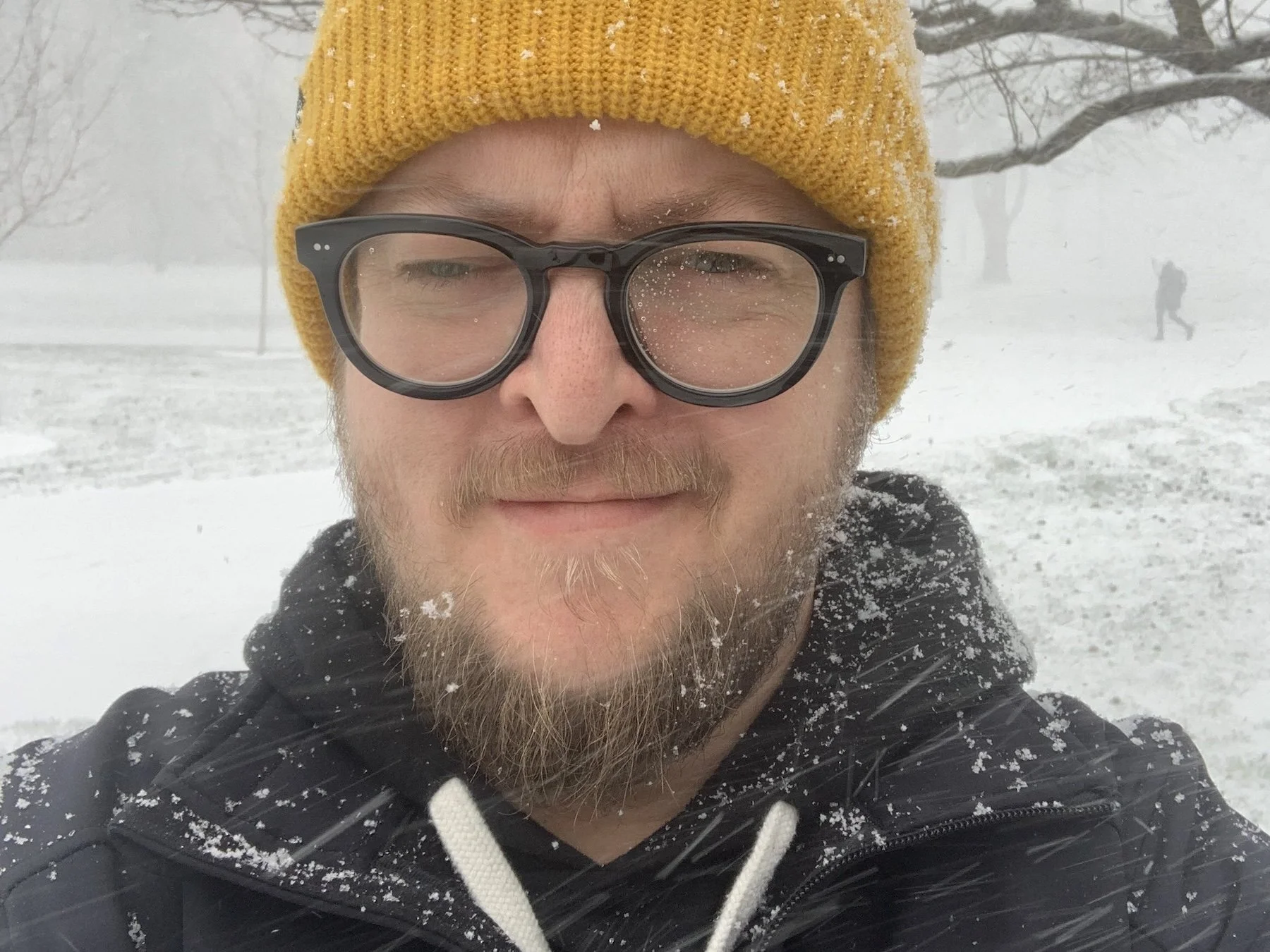Some Personal News
It’s official: I’m going back to school!
Back in May I applied to be part of a Doctor of Ministry cohort in “The Sacred Art of Writing” through the Eugene Peterson Center for Christian Imagination at Western Theological Seminary. A couple of weeks ago I received an email letting me know that “the committee has acted favorably on your application.” Or, as The Message translation would render it: “You’re accepted!”
As many of you know, Katie has been attending Western for the last couple of years, pursuing an MA in Christian Studies. Each semester she has had an intensive or retreat on campus in Holland, Michigan. And each time I’ve been able to tag along—working in the library, mostly, but also spending time with some of the truly wonderful faculty and students who constitute this special community of faith and learning.
On each of these trips—nay, pilgrimages—our souls have been nourished and our hearts refreshed. No surprise, then, that I would describe Western as “a seminary that feels to us, most days, almost too good to be true.” Simply put: when we’re there, we’re among our people.
And so I’m exceedingly grateful and still kind of pinching myself to have been chosen to be part of this next cohort, where with some 20-25 writers I’ll be invited to think “deeply, theologically, and artfully” about the craft—for the good of the church and the life of the world. Leading the cohort is Eugene Peterson’s biographer Winn Collier, with Marilyn McEntyre and John Blase as mentors and Leif Enger and Sophfronia Scott as guest lecturers. A dizzying lineup of great writers and even better human beings.
During these next three years, my goal is to write a real, honest-to-God book (or part of one, anyway) in the vicinity of narrative nonfiction or memoir. Drawing on my own experiences as a missionary kid in war-torn Guatemala, a context of pervasive violence and disinformation—traumas many of us would prefer to forget—I want to grapple theologically with the idea of faithful remembering, which necessarily entails the stewardship of words.
My hope is that this project will serve a range of people—primarily but not exclusively fellow Christians—who have experienced some form of disorientation or dislocation in their lives. I hope it will serve people prone to call “ancient history” the life experiences God is using even now to mold us into wounded healers. And I hope readers will feel in my words a hard-won hope that’s nuanced, humble, and truthful.
I look forward to sharing more of that with all of you in the years ahead, the Lord being my helper. In the meantime, I’d certainly welcome your prayers.
(Oh, and just to clarify: this doctoral program is designed for people with full-time jobs. So yes, we’re staying here in Tempe and I’ll keep working for 1MISSION.)
For now I’ll leave you with an excerpt from one of my application essays, in which I write about my sense of calling as it pertains to words:
Around the same time, I started reading books. I still remember the afternoon I wandered into a bookstore, wondering what it would be like to be a person who reads books, not because they were assigned, but . . . just because. I decided to find out. Growing up in a certain kind of family and belonging to a particular church, initially I read the work of C.S. Lewis, John Piper, and Dietrich Bonhoeffer, among others. But discovering the work of Frederick Buechner changed everything. Other favorite authors would come along in time. But Buechner will always be that first unforgettable lightning bolt.
“Listen to your life,” Buechner wrote, rattling my sense of equilibrium. “See it for the fathomless mystery it is. In the boredom and pain of it, no less than in the excitement and gladness: touch, taste, smell your way to the holy and hidden heart of it, because in the last analysis all moments are key moments, and life itself is grace.”
Reading books became a way of broadening my horizons and of making sense of my life. Like many missionary kids entering adulthood, I struggled to cultivate deep relationships and to access my heart. A slow-moving mud slide of ambiguous grief will do that to you. But books gave me language to describe some of my inner weather, while also helping me find my place in a church and a world that might just benefit from my presence and availability.
What I was reading in books—and in the Bible—led me, literally, to the ends of the earth. At a juvenile hall in Costa Rica, I played soccer with inmates far more skilled than me. In a temple in Vietnam, a Buddhist monk grabbed a dragon fruit off the altar and gave it to me as an instinctual act of hospitality. In a hospital room in rural Kenya, I sat with a woman dying of AIDS, who led us in singing “Blessed be the name of the Lord.” And in places like Guatemala and New Orleans and my own city, I interviewed people, listening to and learning from their stories.
I was beginning to sense the outlines of a calling: to use my writing gifts to amplify the voices of people on the margins—in service of the One who is making all things new.
Sometimes WTS looks like this…
… and other times it looks like this.


